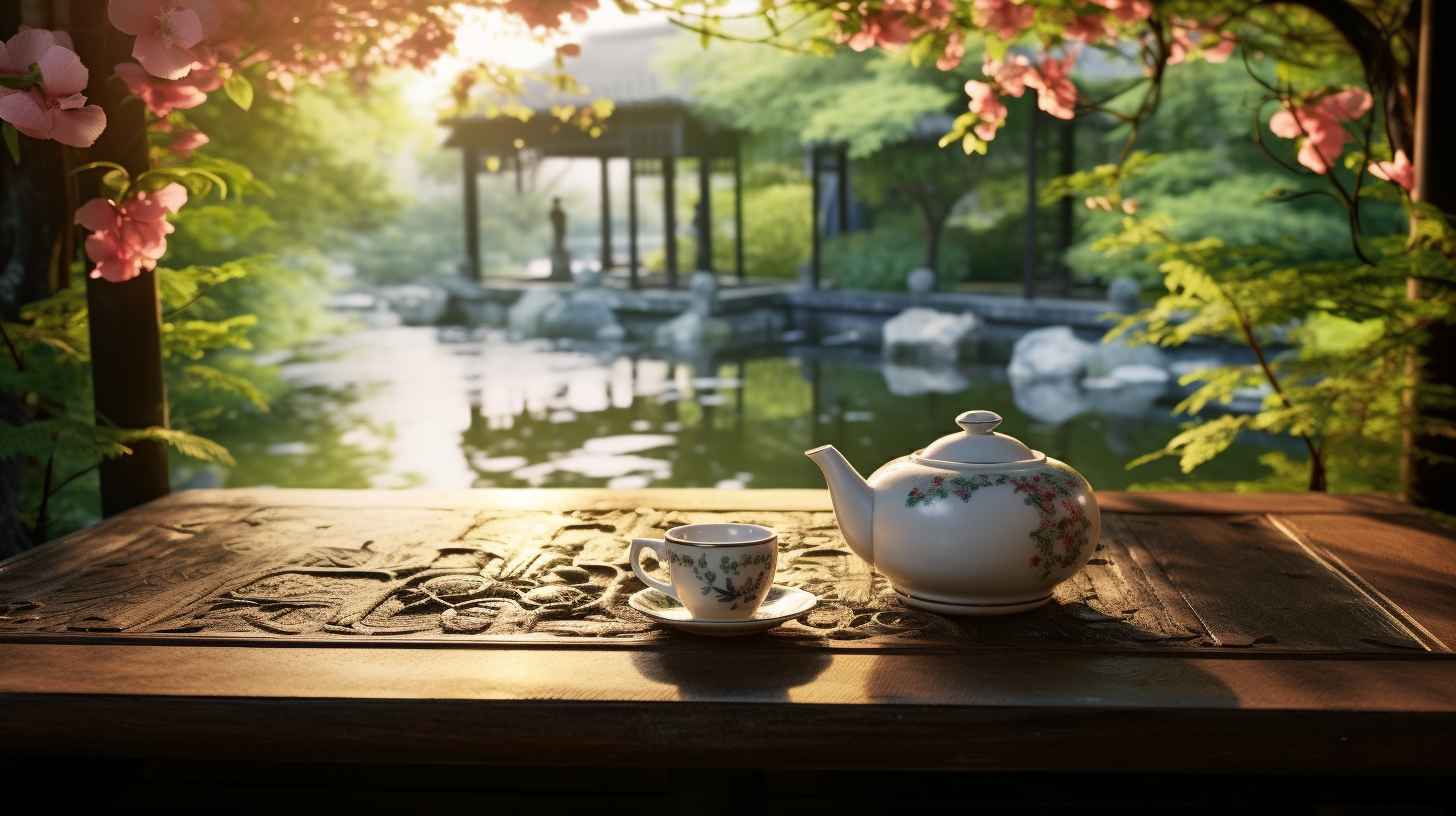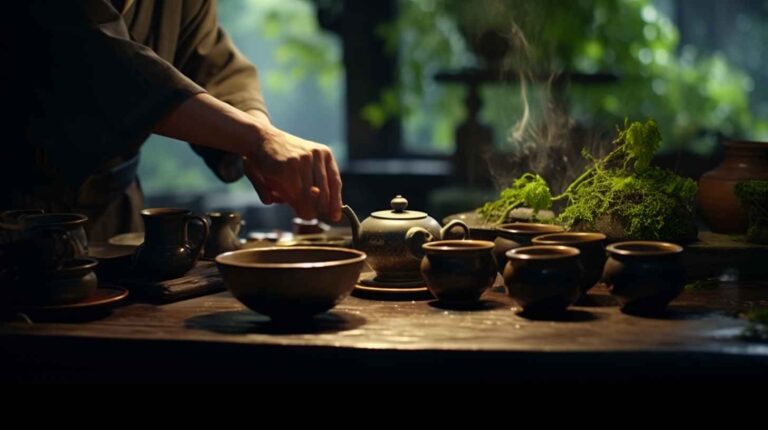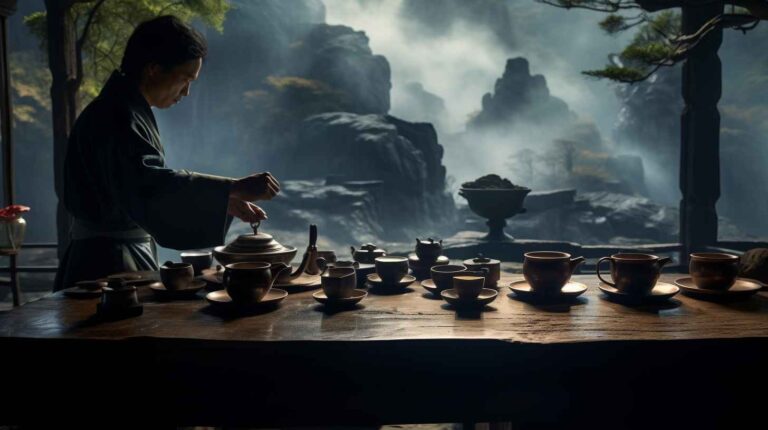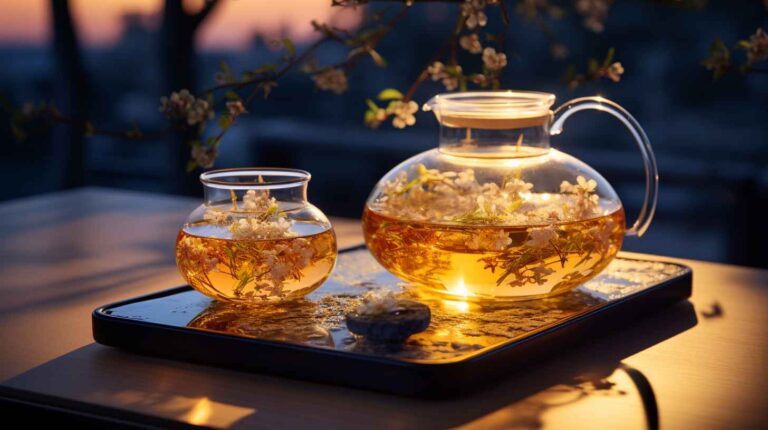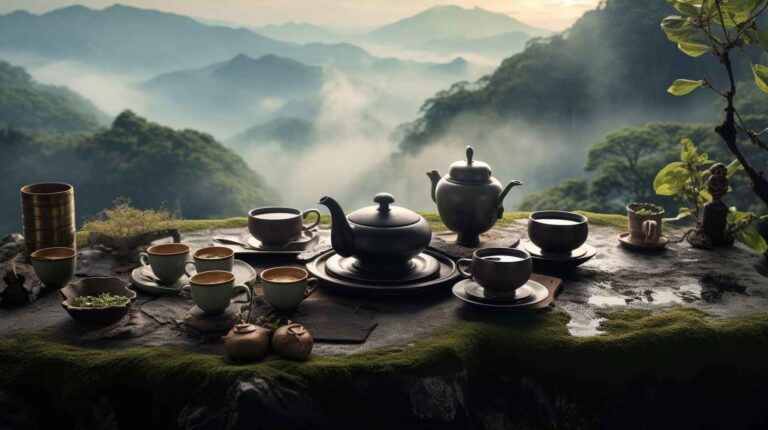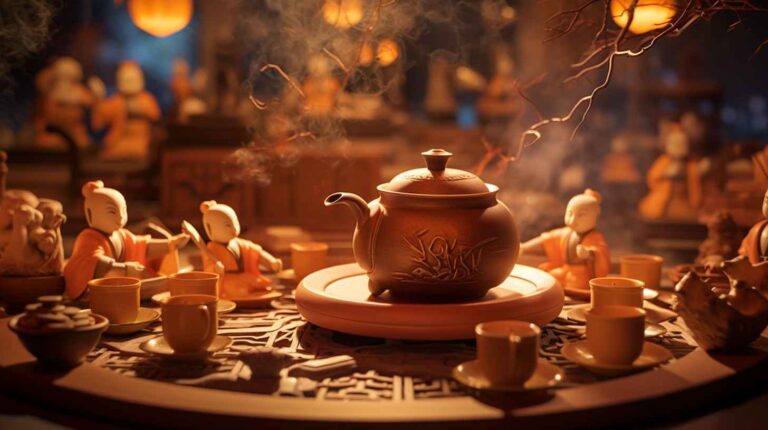The Science of Water Quality: How It Shapes Your Brew
Introduction
Water, known as the elixir of life, forms the foundation for many natural processes and human-made concoctions. Among its various roles, water’s unique quality as a “universal solvent” stands out. This is primarily because of its exceptional capability to dissolve a vast array of substances. With this intrinsic trait, it’s not surprising that water is the predominant medium for brewing several beverages, notably tea. But does the water you use matter? Absolutely. The quality of water can transform the taste, scent, and the entire tea-drinking experience. As we journey through this article, we’ll unravel the intricate science of water quality and its pivotal role in crafting that perfect cup of tea.
Understanding Water Composition
Before we dive into the depths of brewing, it’s essential to understand water in its raw form, appreciating its chemical complexity.
Mineral Content: At first glance, water might seem transparent and pure, a simple compound of two hydrogen atoms and one oxygen atom. However, water, especially the kind sourced from natural reservoirs, is seldom pure H₂O. Minerals like calcium, magnesium, potassium, and sodium are naturally present. The proportion of these minerals dictates the water’s hardness, which in turn, can be a game-changer for the taste and aroma of your brewed tea.
pH Levels: The pH scale, spanning from 0 (highly acidic) to 14 (highly alkaline), is a measure of the hydrogen ion concentration in a solution. Water, in its purest form, sits at a pH level of 7, perfectly balanced in neutrality. But the water we consume might sway on this scale, affecting not just its taste but also its interaction with tea components.
Dissolved Gases: While water is a liquid, it carries with it certain gases, most notably oxygen. The levels of these dissolved gases can influence water’s taste and its synergy with tea leaves during brewing.
The Interplay of Water Hardness and Tea
Water’s mineral composition, primarily influenced by calcium and magnesium ions, gives it its characteristic hardness or softness. But why does this matter for your cup of tea?
Flavor Extraction: The minerals in hard water can sometimes be a double-edged sword. On one side, certain minerals can enrich the taste. But when excessively hard, water might impede extracting the delicate flavors from tea leaves. Imagine a tea that has all the potential to be rich and aromatic but ends up tasting surprisingly flat. That’s the influence of hard water.
Aroma Preservation: Beyond taste, the aroma is a defining aspect of a good brew. Hard water, laden with minerals, can be restrictive. It may hold back the release of some of tea’s aromatic compounds. This implies that even though the tea leaves possess a rich fragrance, hard water can muzzle it, giving you a less aromatic beverage than its potential.
Visual Appeal: For many tea connoisseurs, the pleasure isn’t just in the taste and aroma, but also in the visual delight. Hard water, however, can sometimes dampen this visual treat. Especially with lighter teas, like the subtle green or delicate white, hard water can induce a cloudy appearance. The minerals interact with specific tea compounds, forming visible precipitates that can mar the tea’s visual allure.
pH Levels: Striking the Balance
The delicate dance between acidity and alkalinity in water is a central aspect of brewing tea, with pH levels acting as the choreographer.
Acidity and Flavor: A slight tilt towards the acidic side of the pH scale can give your tea a vibrant edge. Such water can highlight and accentuate the bright, tangy notes in tea. On the flip side, water leaning towards alkalinity might bring out the more mellow, sweet undertones. The key lies in striking the right balance, ensuring a harmonious expression of all tea flavors.
Tea Type Variations: Every tea type is a world in itself, with preferences for its brewing environment. While green teas might flourish in a slightly acidic milieu, black teas often shine in mildly acidic settings, unveiling their rich, robust character.
The Role of Dissolved Gases
Let’s talk about an unsung hero in the brewing process: oxygen.
Flavor Enhancement: Oxygen, when adequately dissolved in water, can be a catalyst. It aids in better extraction of flavor compounds from the tea leaves, ensuring that the full spectrum of taste profiles is achieved.
Freshness Factor: Like any other substance, water’s quality can diminish over time. Water that’s been stagnant for prolonged periods might lose its dissolved oxygen content. This loss can translate to a less lively brew. Thus, the recommendation stands: always opt for freshly drawn water when you’re looking to brew the perfect cup.
Water Impurities and Their Effects
While the natural properties of water play a significant role in shaping our brew, it’s equally essential to be aware of potential impurities and contaminants, as they too have the power to redefine your tea experience.
Chlorine and Chloramine: Both chlorine and chloramine are popular disinfectants used in public water systems, ensuring that our tap water remains free of harmful pathogens. While essential for health, they aren’t particularly friendly to our taste buds. When present in significant amounts, these chemicals can introduce a distinct and often unwelcome taste and aroma to your tea. Imagine sipping on a brew that subtly reminds you of a swimming pool. Not the most pleasant, right?
Organic Impurities: Water sources, especially those near urban areas or agricultural zones, can sometimes be tainted with decaying organic matter or microbial contaminants. Apart from potential health concerns, these impurities might introduce off-flavors to your water and subsequently to your brew, muddling the original tea flavors and making your drinking experience less enjoyable.
Heavy Metals: The presence of heavy metals such as lead, mercury, and cadmium, albeit in trace amounts, is a concern that shouldn’t be overlooked. These metals can seep into water sources due to industrial processes and outdated plumbing systems. Beyond the evident health concerns, heavy metals can also tamper with the flavor profile of your brew, adding unwanted metallic undertones.
Choosing the Right Water for Your Brew
The quest for the perfect brew often begins with the pursuit of the right water. Understanding water quality can feel overwhelming, but armed with the right knowledge, you can make informed choices.
Filtered Water: With the myriad potential contaminants and unwanted chemicals that can be found in tap water, investing in a robust water filter is often a wise decision. A good water filter can sieve out many of the impurities, presenting a cleaner, purer medium for your tea, ensuring the flavors and aromas of your chosen tea leaves remain uncompromised.
Spring Water: Nature, in its bounty, sometimes offers the perfect brewing solution. Natural spring water, heralded by many as the zenith for brewing, brings a balanced mineral content and pH level to the table. With its natural composition, spring water can elevate the inherent flavors of tea, allowing for a richer and more authentic tea experience.
Avoid Distilled Water: The quest for purity might lead some to consider distilled water as an option for brewing. While distilled water is almost pure H₂O, devoid of any minerals or impurities, it’s not necessarily the best for tea. The absence of essential minerals means that it can’t extract the full range of flavors from tea leaves, often leading to a brew that feels lackluster and flat.
Temperature Matters: While this article focuses primarily on water quality, it’s worth noting that temperature plays a pivotal role in the brewing process. Each tea type has an optimal temperature range that facilitates the best extraction of its flavors and aromas. Whether it’s the delicate dance of green tea at lower temperatures or the bold embrace of black tea at higher heat, ensuring you brew your tea at the correct temperature further refines your brewing endeavor.
Conclusion
The realm of tea brewing is as vast as it is profound. While the choice of tea leaves, their origin, and processing method play crucial roles, the quality and nature of water used can be a defining factor in the outcome of the brew. By delving into the science of water quality, tea enthusiasts and casual drinkers alike can fine-tune their brewing techniques, bringing out the best in every cup. Remember, as with many things in life, it’s the foundation that counts. In the world of tea, water lays that foundation. The old Chinese adage stands true even today: “Water is the mother of tea.” As you sip on your next brew, take a moment to appreciate the silent yet potent role of water, the unsung hero in your cup.
